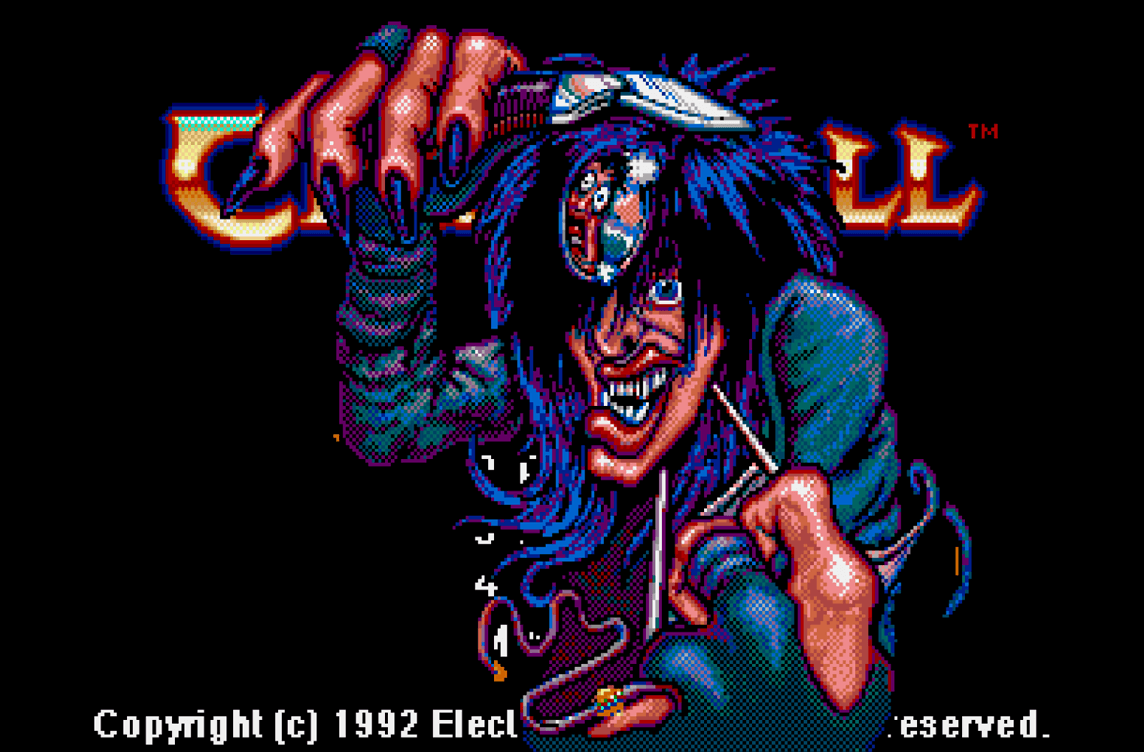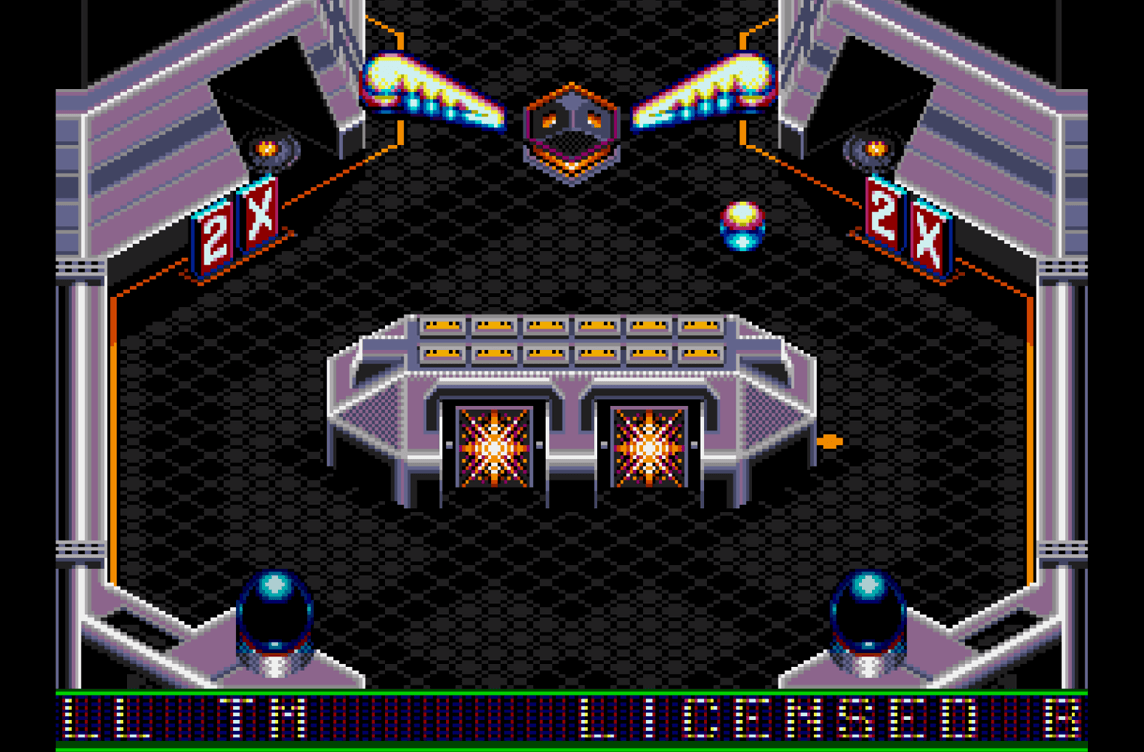In the annals of gaming history, some partnerships stand out as truly unexpected. One such collaboration took place between the notorious glam metal band Mötley Crüe and gaming giant Electronic Arts.
The fruit of this unlikely union was a pinball video game named Crüe Ball. Although the connection between heavy metal and pinball may seem tenuous, this game managed to carve its niche in gaming history.
A Glimpse into Mötley Crüe’s Legacy
To understand the significance of Crüe Ball, it’s crucial to delve into the tumultuous history of Mötley Crüe. The band was the epitome of ’80s excess, embodying the infamous trifecta of “sex, drugs, and rock ‘n roll.”
Their exploits with groupies, antics at strip clubs, and brushes with the law became the stuff of legend. However, as the ’80s drew to a close, the band found themselves grappling with changing times and a shifting musical landscape.

The release of their chart-topping album, Dr. Feelgood, in 1989 marked both a pinnacle and a turning point for Mötley Crüe. It was during this period that the band’s excessive lifestyle began to catch up with them.
The dawn of the ’90s saw the once-untouchable rockers embark on a journey of intervention and rehabilitation. Their newfound sobriety heralded the end of an era defined by debauchery.
The Genesis of Crüe Ball
It was against this backdrop of transformation that Crüe Ball came into being. Originally known as Twisted Flipper, the game underwent a last-minute rebranding to incorporate the Mötley Crüe name. While Alister Fiend, the band’s mascot, made fleeting appearances in the game, the connections to Mötley Crüe were largely superficial.
Electronic Arts did secure licensing rights for three of the band’s songs: “Live Wire,” “Home Sweet Home,” and “Dr. Feelgood.” Surprisingly, these tracks were conspicuously absent from the actual pinball gameplay.
The game’s soundtrack, composed by Brian Schmidt, provided a sonic backdrop for the pinball action. Schmidt, a seasoned composer with a portfolio spanning pinball machines and video games, contributed a dynamic score.
Yet, it’s important to note that Schmidt’s compositions operated on a looping cycle, each track lasting a mere thirty seconds. This contrasted with the full-length renditions of Mötley Crüe’s songs, showcasing the game’s intriguing juxtaposition of licensed music and original score.
The Artistic Touch of Mark Westin Sprenger
Mark Westin Sprenger, a luminary in the realm of pinball design, lent his artistic prowess to Crüe Ball. With seven years dedicated to co-designing coin-operated pinball games, Sprenger’s expertise brought a distinct visual identity to the game.
His notable contributions to Williams’ machines, particularly the acclaimed High Speed, underscored his reputation as a leading figure in pinball artistry.
Pinball in a Realm of Fantasy
Crüe Ball departed from the conventions of realistic pinball simulation, opting instead for a fantastical approach. Drawing parallels to titles like Alien Crush, the game embraced a realm where monsters roamed, bonus stages beckoned, and the playfield underwent dynamic transformations across its nine volumes. This departure from strict realism was well-suited to the capabilities of 16-bit processors, allowing for a more engaging and action-packed experience.
Action-Packed Gameplay
Crüe Ball’s gameplay is characterized by relentless action. Whether battling Dread Heads and Maggots, navigating Breakout-inspired challenges, or engaging in strategic maneuvers, players are kept on their toes. The fast-paced nature of the game ensures that progress is swift, maintaining a high level of engagement.
Table Layout and Progression
While the table layout may appear straightforward, Crüe Ball’s emphasis on swift action compensates for its simplicity. Progression from one volume to the next remains seamless, ensuring the player is never bogged down by repetition. The game’s structure encourages continuous momentum, with objectives clearly defined for the player.

Physics and Gameplay Dynamics
However, Crüe Ball is not without its idiosyncrasies. The game’s physics occasionally diverge from reality, leading to instances of balls passing through flippers or exhibiting unconventional behavior. While these quirks may initially confound players, they often work to the player’s advantage, contributing to a sense of accessibility.
Comparison to Peers
In comparison to contemporaneous pinball titles, Crüe Ball holds its own but does not emerge as a standout. The game’s graphics, while serviceable, lack the polish and visual flair of other titles in the genre. The enemies, though interactive, primarily serve as mobile bumpers and lack distinct characteristics.
Crüe Ball: A Decent Pinball Affair
In summation, Crüe Ball offers an enjoyable pinball experience characterized by its unique blend of licensed music, original score, and fast-paced gameplay. While it may not surpass its peers in every aspect, it certainly carves its niche in the realm of video pinball.
Rock On with Crüe Ball – Where Pinball Meets Glam Metal!
Play Crüe Ball Anytime, Anywhere!
Experience the excitement of Crüe Ball on your web browser, mobile device, or tablet. Whether at home or on the go, the pinball action never stops.